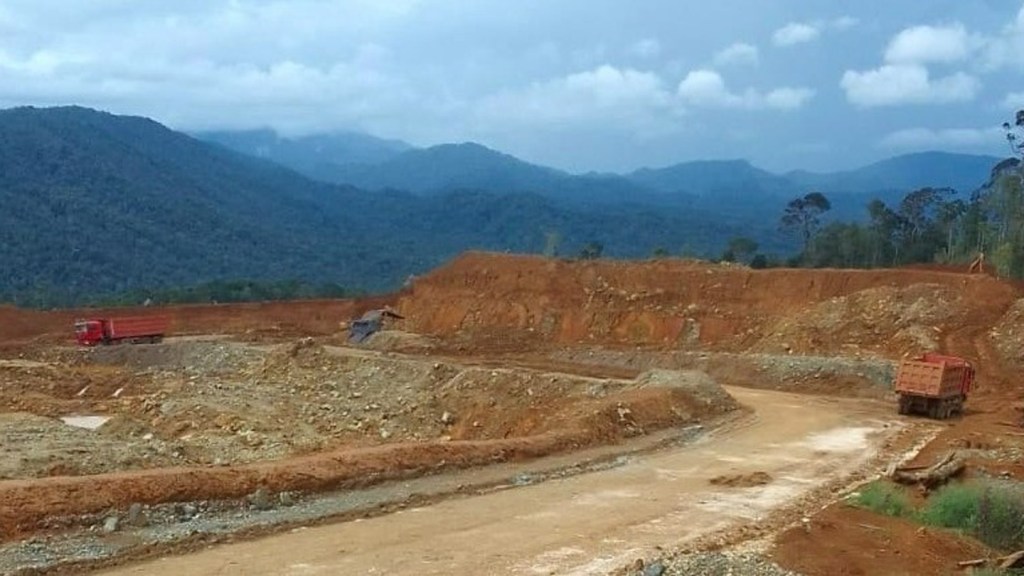Tesla must temporarily halt plans to clear 82 hectares (~203 acres) of pine forest for its upcoming Gigafactory near Berlin, a German court ruled late Monday evening, after two environmental organizations sued the company for endangering local wildlife.
NABU Brandenburg and Grüne Liga Brandenburg, the two organizations behind the suit, reacted to the decision with relief—but they also know it’s only a battle in a year-long war with the electric car giant. While the forest is safe for now, the court’s order is temporary. The final decision is expected in the coming weeks.
Videos by VICE
“It’s a first step, if not a small one, but we feel quite relieved and lucky that the court quickly recognized that we are arguing something worthwhile here,” Christiane Schröder, managing director of NABU Brandenburg, told Motherboard over the phone. If it weren’t for the court order, she said, the forest would’ve been cleared in a matter of days.
Ever since it was announced last November, the planned Gigafactory (which Tesla claims will be “the most advanced high-volume electric vehicle production plant in the world”) has been met with fierce resistance from environmental activists. Tesla wants to have the facility up and running by July 2021.
Since the factory will require a massive 1.45 million cubic meters of water a year in a region where the resource is already scarce, activists fear that it could harm a number of protected plants and animals in the bordering Löcknitztal nature reserve. Furthermore, they argue, Tesla’s plans to cut down large swathes of pine forest show little understanding or care for its inhabitants. While the firm pledged to catch and relocate the animals, many of them are burrowed and hidden during the winter months, making them hard to find.
“We really see little regard from Tesla when it comes to the local nature,” Schröder said. “If they wanted to properly catch and relocate the species, they would’ve gone out in March or April, when they are actually out. Instead, they started in the end of July, when a lot of animals are already starting to hide themselves. A normal catching operation of this scale would preferably take four years; this was done in two months.”
“If this forest is cleared, all of them will die, including the very rare smooth snakes,” she added.
Besides potentially harming local wildlife, Tesla’s actions have been emblematic of a billion dollar company that in the past has shown little regard for laws and regulations.
The company has already built 30 percent worth of the projected building costs, daily German newspaper Der Tagesspiegel reported, despite not even receiving final environmental approval from state authorities.
While Tesla’s provisional permit does make this technically legal, Schröder said, the massive scale of the project means that the further it goes along the harder it is for authorities to say no. And, even if they do say no, much of the environmental damage will have already been done.
There are also huge financial interests behind the project. In a familiar story, the company is building the factory in Germany’s economically disadvantaged former Eastern bloc, which has traditionally suffered from higher rates of unemployment in comparison to other German states. In that sense, declining the promise of 40,000 jobs is hard to stomach politically, especially considering the heated competition between European countries to house the factory in the first place. (A group of gamers in Lithuania even built a replica of the factory in Minecraft to get the firm’s attention).
While Germany’s left-wing Green party (Die Grünen) supports the environmental groups, for example, they also see the Gigafactory as an important opportunity.
“If the Tesla Gigafactory gets realized as planned, a major hub for e-mobility will be located on the state of Brandenburg’s soil,” Alexandra Pichl, state party chairwoman of the Green party, wrote in a statement to Motherboard. “Bündnis 90/Die Grünen Brandenburg welcome these developments. However, we insist that the whole process adheres to strict environmental standards and regulations, start to finish. Accordingly, we appreciate the efforts undertaken by the environmental organizations NABU and Grüne Liga to ensure that no environmental regulations are being violated.”
“We believe that the establishment of a hub for innovation in this sector, as well as the influx of considerable labor opportunities, will help the state of Brandenburg cope with the foreseeable termination of the region’s traditional coal industry and will contribute to forging ways towards a sustainable, innovative economic future for Brandenburg,” she added.
With little political support, environmental activists like Schröder know they are David in this battle. The stakes are high, they say, not only for the plants and fauna, but also for future conservation efforts.
“If the court ultimately decides in Tesla’s favor, it’s not just a loss for this case, but also for the norms of how we usually deal in Germany with protecting nature,” she said. “It would set a terrible precedent, namely, that big companies can get away with only half-heartedly, or not at all, adhering environmental regulations. Big companies cannot have any impunity when it comes to respecting nature.”




